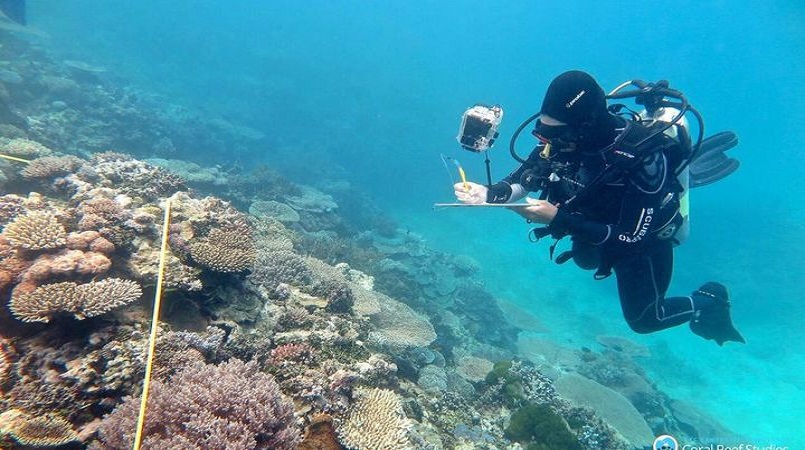
Another mass bleaching event on the Great Barrier Reef, caused by warmer ocean temperatures, has been confirmed after just one day of aerial surveys.
The Great Barrier Reef has been closely monitored for the past few years due to bleaching concerns.
The first survey for 2017 was conducted on Thursday by the Great Barrier Reef Marine Park Authority, over the area between Cairns and Townsville in northern Queensland.
The agency's David Wachenfeld said that had given him enough information to "regrettably" confirm another mass bleaching.
"We also have quite a few reports through our early warning system, the eye on the reef program," Dr Wachenfeld said.
Warmer water temperatures resulted in the widespread bleaching of large areas of coral in the northern reef last year.
It resulted in the largest die-off of corals ever recorded on the reef.
Scientists estimated that two thirds of coral coverage died in a 700km stretch of reef north of Port Douglas in far north Queensland.
Dr Wachenfeld said it was too soon to know how this year's bleaching event compared to that seen last year.
"The reef of course is bigger than Victoria and Tasmania combined, it takes us quite a while to get the overall picture of everything that's going on out there," he said.
"To some extent it's not as important whether this event is not quite as bad or worse than last year's, I think what's important is that the climate is changing and that is bringing a much greater frequency of extreme weather events to the Great Barrier Reef."
"In total, those extreme weather events and the overall impact of climate change is a major threat to the future of the reef."
Surveys over the rest of the reef would be conducted in the next fortnight.
Photo: Tory Chase / ARC Centre of Excellence for Coral Reef Studies.
